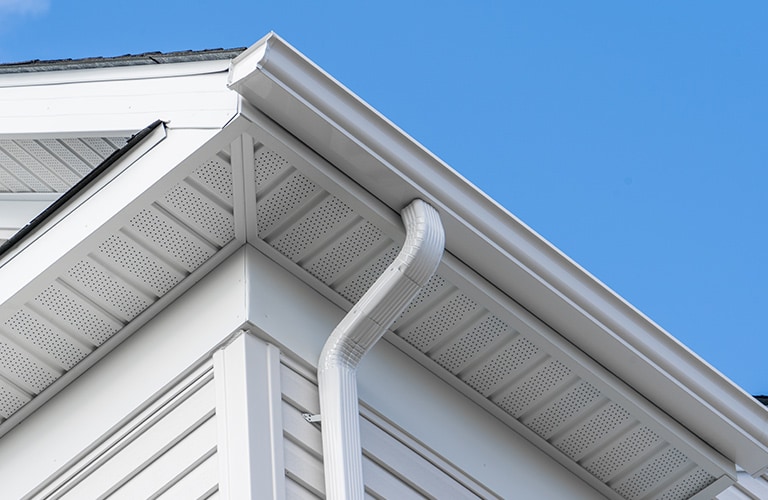Rain gutters play a crucial role in protecting your house from water damage by channeling rainwater from the roof and foundation. In regards to selecting the best Rain gutters material, there are various solutions, each having its own set of advantages and considerations. In this comprehensive guide, we will explore the most typical rain gutter materials, helping you make the best decision that suits both your aesthetic preferences and functional requirements.

Aluminum Gutters:
- Advantages: Lightweight, corrosion-resistant, and an easy task to install. Aluminum gutters may also be low-maintenance and can withstand contact with the elements without rusting.
- Considerations: While aluminum is durable, it may possibly not be as sturdy as other materials, which makes it susceptible to denting. Additionally, it may possibly not be the best option in areas with severe weather conditions.
Vinyl Gutters:
- Advantages: Cost-effective, easy to install, and resistant to rust and corrosion. Vinyl gutters may also be for sale in various colors, permitting customization to complement your home's exterior.
- Considerations: Vinyl can become brittle over time, especially in extreme temperatures, and may possibly not be as durable as metal alternatives. It may possibly not be suitable for homes in areas susceptible to heavy snow loads.
Steel Gutters:
- Advantages: Steel gutters, particularly those made from galvanized steel, are robust and can withstand harsh weather conditions. They're also resistant to rust and offer a long lifespan.
- Considerations: While galvanized steel is corrosion-resistant, it may eventually rust over time. Stainless steel is really a pricier but more corrosion-resistant alternative.
Copper Gutters:
- Advantages: Noted for their aesthetic appeal, copper gutters add some elegance to a home. They're also corrosion-resistant and develop a unique patina over time.
- Considerations: Copper gutters are among the most expensive options. While their initial cost is high, they might need minimal maintenance and can last for decades.
Zinc Gutters:
- Advantages: Similar to copper, zinc gutters develop a protective patina over time, providing a unique appearance. They're durable, corrosion-resistant, and have an extended lifespan.
- Considerations: The upfront cost of zinc gutters may be greater than other materials. However, their longevity and low maintenance costs make sure they are a cost-effective choice in the long run.
Wood Gutters:
- Advantages: Wood gutters offer a classic and natural aesthetic. They could be customized to match the architectural design of the home.
- Considerations: Wood requires more maintenance than other materials. Regular sealing or painting is important to guard against rot and decay. Additionally, wood gutters may possibly not be as durable as metal options.
Composite Gutters:
- Advantages: Combining materials like recycled plastics and wood fibers, composite gutters offer a balance between durability and aesthetics. They're resistant to rot and insects.
- Considerations: While composite gutters are low-maintenance, their availability may be limited compared to more traditional materials.
In summary, the choice of rain gutter material depends on a number of factors, including your budget, climate, and aesthetic preferences. Assess the specific needs of your house and local weather conditions before building a decision. Understand that regular maintenance, such as for example cleaning and inspections, is needed for ensuring the longevity and effectiveness of any gutter system. By selecting the most appropriate rain gutter material, you can improve your home's curb appeal and protect it from potential water damage for years to come.

.jpeg)
No comments:
Post a Comment